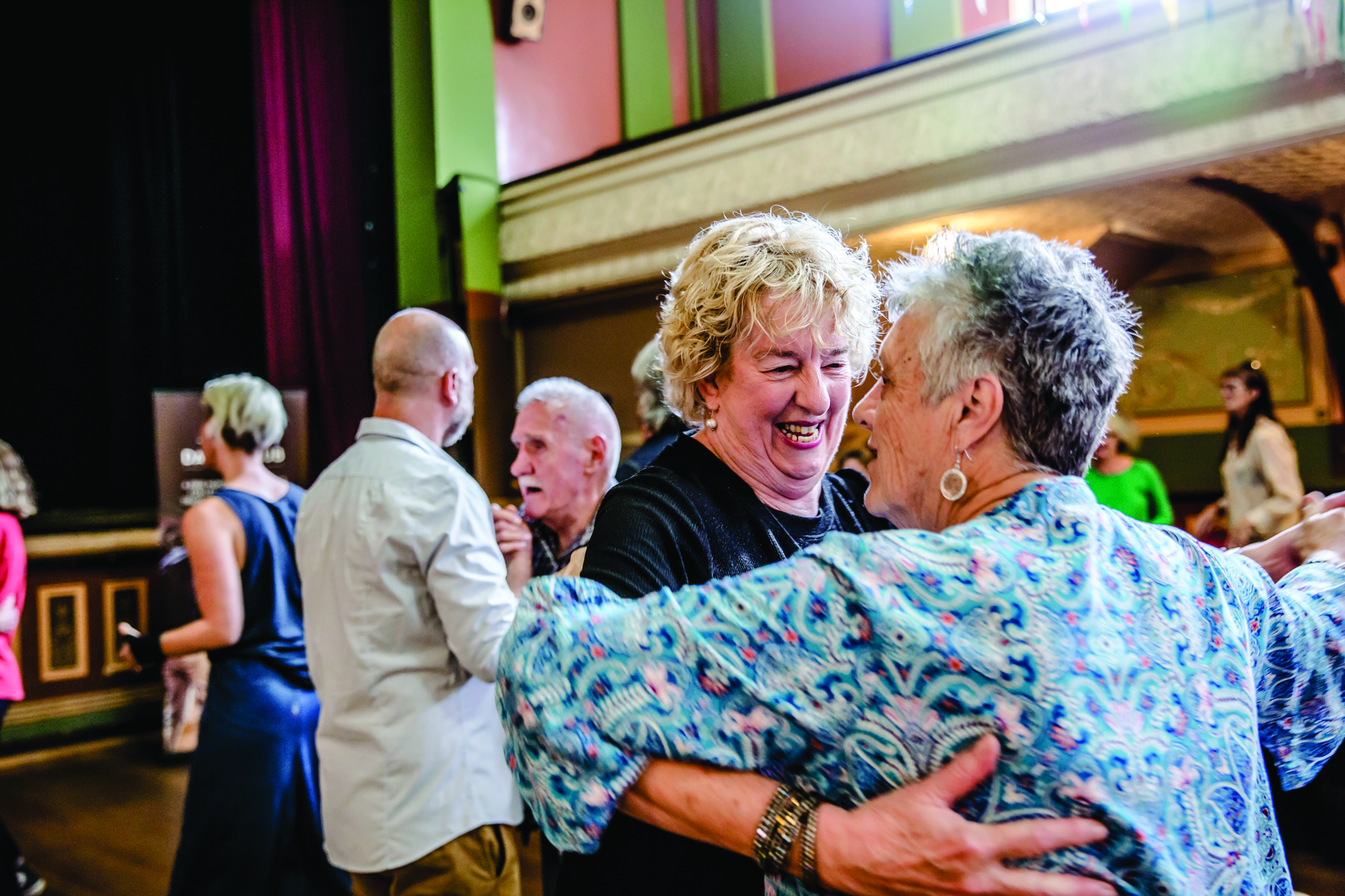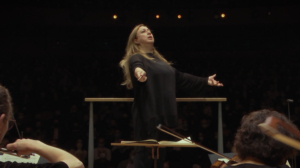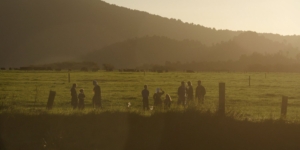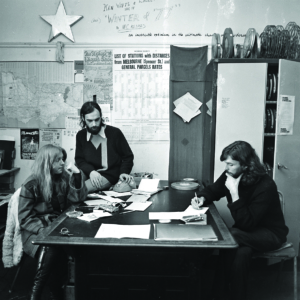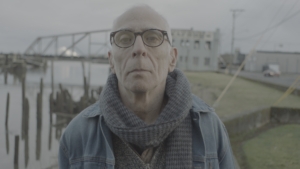After a life lived fighting for queer and women’s liberation as well as championing other marginalised voices, including those of Australia’s Indigenous peoples, 78-year-old Pink Floyd fan and former police officer Nance Peck refuses to be disappeared.
Embracing a non-binary gender identity in recent years, after a life lived largely as a lesbian, she’s just as happy being called ‘mate’ as she is going by female pronouns. What she won’t accept, however, is being pushed out of the way by oblivious pedestrians. It’s a red line she clearly demarcates with candour in Sue Thomson’s gloriously life-affirming 2018 documentary The Coming Back Out Ball Movie (TCBOBM). Debuting on the closing night of last year’s Melbourne International Film Festival (MIFF), it follows eleven elders spanning the gender and sexuality spectrums as they prepare to attend the eponymous gala held in their honour at the Melbourne Town Hall on 7 October 2017 – just over a month shy of the release of the results of Australia’s postal vote on marriage equality on 15 November.
Sparrow-like in frame but larger than life, Peck notes, in TCBOBM, that she engages an Australian Football League player’s darting elbow or swift hip thrust to clear her path. This exact premise plays out as I sit down with Peck and Thomson in a Richmond cafe on a stinking-hot Melbourne summer’s day that would try anyone’s patience. The big lug who blunders into her, unthinkingly, on his way to the counter is unlikely to do so again in a hurry.
Growing up in Queensland during the 1940s and 1950s, Peck describes the state as being a ‘land of bloody ignorance’, with stiflingly backwards politics and socially conservative views that were anathema to her increasingly progressive outlook on life. As an adult, she began to push back, embracing activism: ‘overcoming ignorance is important to me,’ Peck insists.
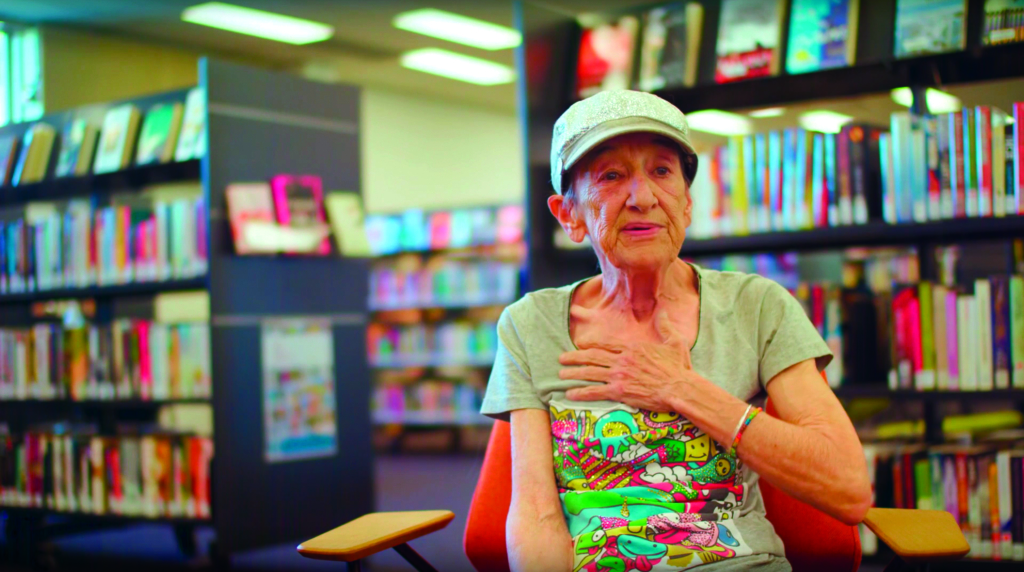
No Cinderella
The inaugural Coming Back Out Ball, held as part of the Victorian Seniors Festival in association with the third National LGBTI Ageing and Aged Care Conference, directly addressed this sidelining of older people who are gender- and sexually diverse. Organised by social-equality and community-arts outfit All The Queens Men, led by Tristan Meecham and Bec Reid, the project
is informed by growing research around isolation and loneliness plaguing elderly populations, which is deemed even more acute for LGBTI people. Research also reveals that some LGBTI elders conceal their sexual, gendered or cultural identity or variation(s) when they access aged care services – because they believe they are not safe.[1]‘The Coming Back Out Ball’, All The Queens Men website, <https://allthequeensmen.net/projects/coming-back-ball/>, accessed 7 February 2019.
This worrying phenomenon is underlined by findings released by the Australian Institute of Health and Welfare:
The history of discrimination experienced by older Australians who identify as LGBTI can be a source of anxiety in disclosing sexual orientation and gender identity. Approximately 34% of people who identify as LGBTI reported hiding their sexuality or gender identity when accessing services.[2]Australian Institute of Health and Welfare, ‘Older Australia at a Glance’, 10 September 2018, <https://www.aihw.gov.au/reports/older-people/older-australia-at-a-glance/contents/diverse-groups-of-older-australians/older-australians-who-identify-as-lesbian-gay-bisexual-transgender-or-intersex>, accessed 7 February 2019.
‘When the plebiscite came in, that convinced me to come out of my comfort zone and be involved … If there’s a reason to speak, then, fuck, I’m old enough to stand up. I need to. So I did.’
—Nance Peck
On the surface, the ball’s mission statement fits perfectly with the impassioned Peck’s determination to be seen and heard. But the prog-rock and world-music fan was less convinced by what she saw as a very narrow view of what appealed to an older audience: the event had a showtune focus, spearheaded by cabaret star and producer Robyn Archer, opera singer Deborah Cheetham and celebrity showgirl Carlotta. Initially wary of Meecham’s intentions, Peck took some convincing to attend and to be filmed by Thomson, but her own politics – along with the widespread harms posed by the postal vote – eventually drew her in.
I was suspicious, because I’ve done a bit of filming myself, but when the plebiscite came in, that convinced me to come out of my comfort zone and be involved […] If there’s a reason to speak, then, fuck, I’m old enough to stand up. I need to. So I did.
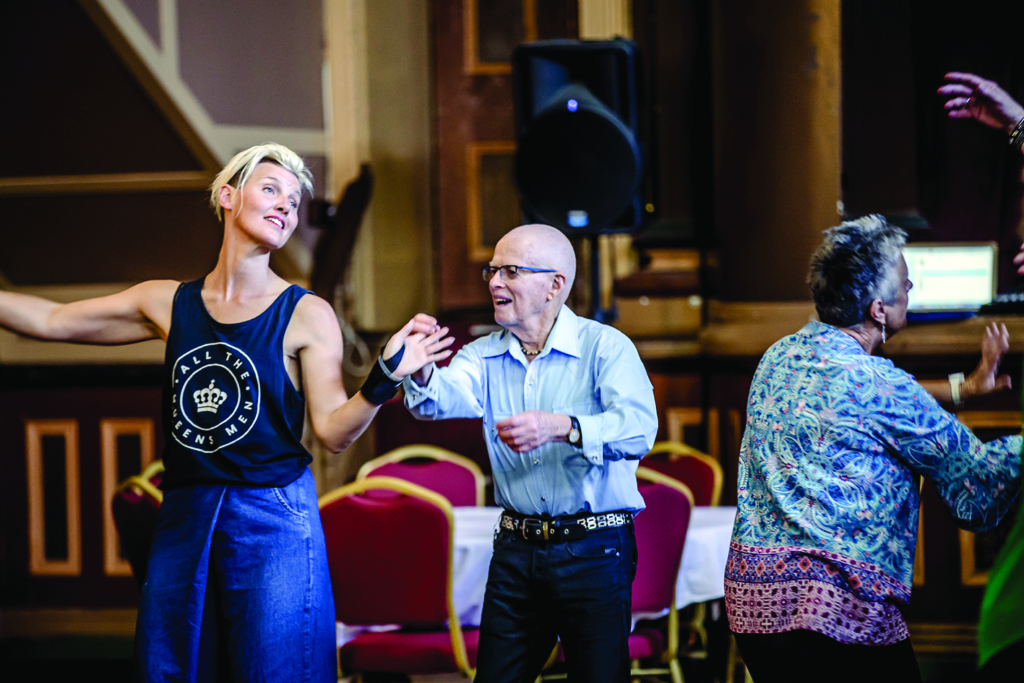
Loud and proud
After moving from Bundaberg to Sydney in the 1960s, Peck found herself politically fired up and, since then, has seen film as an invaluable tool for social change, pointing to Open Channel’s foray into public-broadcast television, C31 and NITV as great community-led examples. She’s optimistic about the democratisation enabled by new technological tools such as smartphones:
I think film is more powerful now than it ever was – [especially] in terms of digital, which has been revolutionary. It doesn’t mean it’s all going to be quality, but it does mean listening to new voices and accessing the world […] It’s all about access, the degree to which film is reflecting you. Do you see anybody like yourself? That’s the most important thing.
Peck joined the police force after returning to Queensland, working in the Juvenile Aid Bureau, but ultimately left to study anthropology and sociology, then a postgraduate degree in psychology at the University of Queensland. Becoming an active protester there, she marched against the Vietnam War and the Springboks’ planned South African tour during apartheid, among other causes. She also helped set up multiple women’s support groups and refuges in Brisbane, despite the oppressive reign of then–Queensland premier Joh Bjelke-Petersen. With federal funds made available by then–prime minister Gough Whitlam – to support young people at risk of offending, people facing homelessness and women fleeing domestic violence – she wielded the black-and-white video camera she was given by fellow volunteers to great effect. ‘The Whitlam government’s “video access” policy opened up a way to show what we were dealing with while helping run a women’s shelter,’ she recalls. ‘It was an exciting and exhilarating time where everyone “had a go” at everything, but many of us were blacklisted.’
Peck had always loved weekend trips to the movies as a kid despite her father’s off-putting addiction to westerns, but it was a screening of 2001: A Space Odyssey (Stanley Kubrick, 1968) that truly awoke her to the power of cinema – even as she pushed back against the ‘dickhead pontificating’ of overly academic film fans. Looking back, she remembers how she and her peers put that newfound power into action while revelling in some gallows humour: ‘They had found this piece of video that was still extant, and there we are […] saying, “Yes, these shelters are up and running, and we are going to end family violence in five years.”’
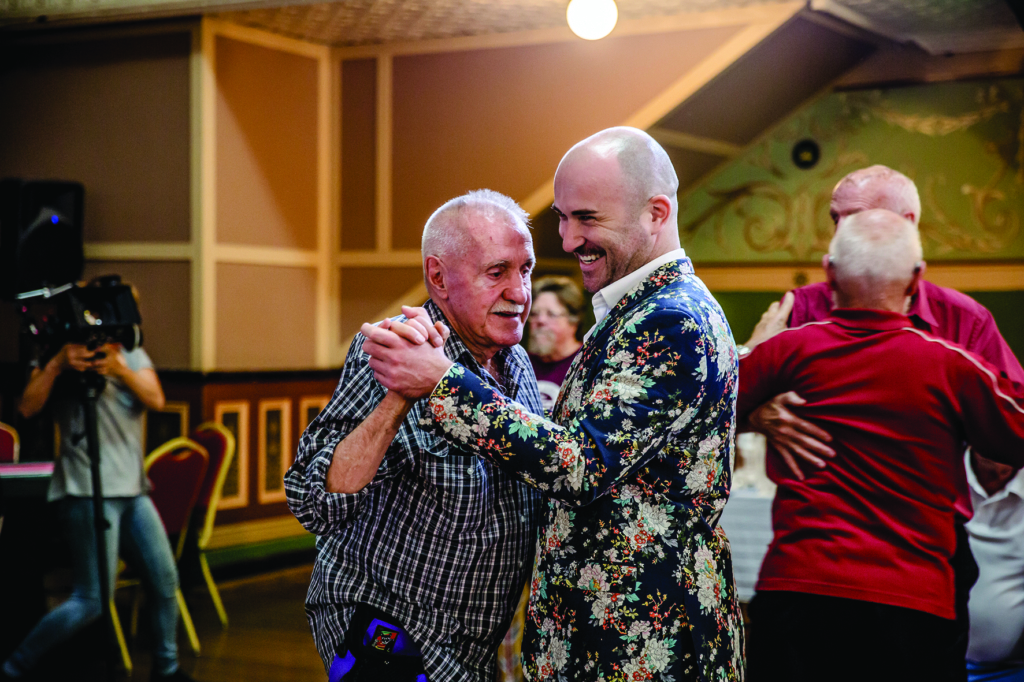
Although that fight continues, Peck, who moved to Melbourne in 1977, remains determined – and her belief in activism-charged cinema is undimmed after many years of working with the likes of Open Channel’s predecessor Melbourne Access Video and Media Cooperative, which have provided opportunities for continued community involvement.
Digital is great for queer stuff. It brings us into a different, non-gendered diversity that actually can be extremely confusing or confronting. But it puts the question back on everybody who watches it: what is your attitude?
Attitudes evolve
When Thomson first met Peck, the pair soon realised they shared similar pathways and mutual friends. Neither went to film school, instead having learned on the job. ‘I did everything from directing to audio, editing to catering,’ Thomson says, of her time at C31. ‘Women could do anything – there was no gender depreciation in that organisation.’
Despite this solid connection, it still took time to build a trusting relationship, with Thomson spending months with Peck before the cameras rolled on TCBOBM. ‘I wouldn’t have done it if Sue hadn’t been making it,’ says Peck, ‘because you really expose yourself […] Sue and her team came into my space and I felt comfortable.’ According to Thomson, this was time well spent:
Initially, Nance was reticent – as a lot of people were – but I wanted to represent as many of the community as I could and knew I had to include her […] I admire her humanity, her acceptance of everyone, no matter their gender or sexual identity, or their colour, and her wonderful humour, feisty spirit and genuine self-deprecating humbleness. Nance is a humanist, and that’s what I aspire to [be].
Thomson, whose roots lay in theatre, was drawn to film’s ability to reach more people more easily. ‘What I loved about public broadcast was the immediacy and the lasting impact, whereas, with theatre, you might be on for a week and then it’s gone. There’s no record.’ Today, Thomson regularly funnels her interest in social work into her filmmaking; one of her earlier documentaries, Tempest at the Drop-In (2013), narrated by Eric Bana, features professional actors working with people with mental-heath issues to stage a production of William Shakespeare’s The Tempest. ‘I’ve always wanted to help people, and documentary is a way of combining my own passions with trying to effect change.’
Changed perspectives
It was Thomson’s friendship with Meecham’s boyfriend, screenwriter and producer Roger Monk, that led to her being brought on board early to document the creation of The Coming Back Out Ball. But she soon realised the film needed to be more about the elders than the event itself. The resulting documentary has become a fascinating record of the particular travails – and triumphs – of the LGBTQIA+ community in all its wonderful diversity, with Peck joined by the likes of Ardy Tibby, a lesbian who has proudly grown out her beard and who thinks balls are a bad idea because they screw with her bedtime, and leather-loving David Morrison, who only felt able to come out in his mid seventies, after the death of his wife of several decades. Then there’s Michelle McNamara, who fully embraced her transition over the course of filming; Indigenous artist Peter Waples-Crowe, the youngest of the bunch, who seeks to reconcile his racial and sexual identities; and intersex woman Trace Williams, who notes that the ‘I’ in the acronym is already pretty invisible within the broader gender-and-sexually-diverse community, never mind the general population, and that’s before age is even taken into account.
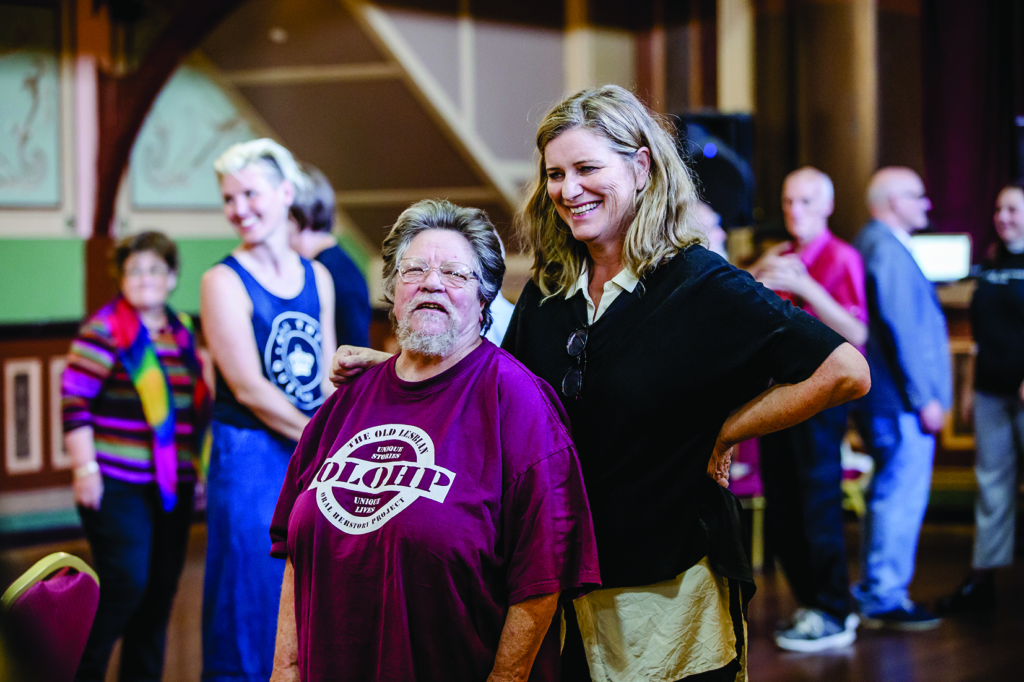
Shining the spotlight on this charismatic bunch, TCBOBM employs an empowering and uplifting tone without shying away from the hardships faced by many of its contributors. As critic Glenn Dunks puts it, the film
gains much of its power from the strength and resilience of its subjects […] Whether it’s the erasure that many elderly people feel from a community despite their agility, their passion, and their desire to contribute, or something more specific to the queer experience like the elation that comes from a transgender individual no longer seeing their deadname on office nameplates. Their stories remain important and relevant in a society that many still feel unsafe in and disrespected by.[3]Glenn Dunks, ‘The Coming Back Out Ball Movie Is a Valuable Resource for the Australian Queer Community’, Flicks.com.au, 5 December 2018, <https://www.flicks.com.au/reviews/australian-documentary-the-coming-back-out-ball-movie-is-a-valuable-resource-for-the-queer-community/>, accessed 7 February 2019.
Peck wasn’t sure what to expect when she attended the film’s premiere at MIFF:
It was an interesting exercise for me. I’m seventy-plus now, so I’m basically a new person, really. I’ve been on a mission to find my own truth, to not care what others think about me, to let go of that kind of responsibility.
However uncomfortable she may have been at the thought of revealing such intimate details about her personal journey, she remains committed to sharing her story, standing up and not fading away. ‘I am friends with people of all ages because I have never seen age as defining who you are,’ she says, chuckling as she recalls how one friend asserted that she has a 35-year-old attitude in a 78-year-old body.
Expressing joy that her cheeky humour ‘isn’t too in-your-face’ in the film, Peck says that humour is an important tool in tackling a big issue like the fate of Australia’s ageing LGBTQIA+ population. But it’s not all levity, with Peck harbouring serious concerns about the monetisation of the aged-care industry.[4]See Matt Wade, ‘The “Marketisation” of Aged Care’, The Sydney Morning Herald, 22 September 2018, <https://www.smh.com.au/politics/federal/the-marketisation-of-aged-care-20180921-p5057m.html>, accessed 7 February 2019.
Thomson has reservations, too. ‘I learned so much working on this project, and I’d like to say that things have changed for the better, but, in some ways, I think it’s getting worse.’ Pointing to the continued existence of discriminatory practices and policies, both at home and overseas, she suggests that constant vigilance – and Peck’s particular brand of impassioned activism – is required. ‘I hope The Coming Back Out Ball Movie has changed a few minds. I know it has within my circle, but there’s a big fight and it’s not over yet. Some of what’s happening out there is terrifying.’
Reluctant to wrap up on a negative note, Thomson reiterates that working with the LGBTQIA+ elders has been life-changing for everybody.
Every single person involved in this film – from Nance to Ardy to Michelle – has very different politics, and yet they all managed to get their voices across. And they have all seen each other in a different light that, perhaps, sitting at the ball, they wouldn’t have. They have heard each other’s stories and actually respect each other more as a result, and that’s what I’m most proud of. It’s incredible.
https://www.thecomingbackoutballmovie.com
Endnotes
| 1 | ‘The Coming Back Out Ball’, All The Queens Men website, <https://allthequeensmen.net/projects/coming-back-ball/>, accessed 7 February 2019. |
|---|---|
| 2 | Australian Institute of Health and Welfare, ‘Older Australia at a Glance’, 10 September 2018, <https://www.aihw.gov.au/reports/older-people/older-australia-at-a-glance/contents/diverse-groups-of-older-australians/older-australians-who-identify-as-lesbian-gay-bisexual-transgender-or-intersex>, accessed 7 February 2019. |
| 3 | Glenn Dunks, ‘The Coming Back Out Ball Movie Is a Valuable Resource for the Australian Queer Community’, Flicks.com.au, 5 December 2018, <https://www.flicks.com.au/reviews/australian-documentary-the-coming-back-out-ball-movie-is-a-valuable-resource-for-the-queer-community/>, accessed 7 February 2019. |
| 4 | See Matt Wade, ‘The “Marketisation” of Aged Care’, The Sydney Morning Herald, 22 September 2018, <https://www.smh.com.au/politics/federal/the-marketisation-of-aged-care-20180921-p5057m.html>, accessed 7 February 2019. |
